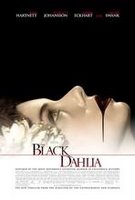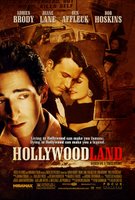 The Black Dahlia had a decent amount of hype surrounding it. A newer attempt at film noir—a style that has not been very popular in recent years—it did quite a good job. For the most part, I was transported back to the 1940s (sorry, Particle Man, not the 1950s)—the costumes, scenarios, and sets were convincing without screaming too loudly and really set the tone.
The Black Dahlia had a decent amount of hype surrounding it. A newer attempt at film noir—a style that has not been very popular in recent years—it did quite a good job. For the most part, I was transported back to the 1940s (sorry, Particle Man, not the 1950s)—the costumes, scenarios, and sets were convincing without screaming too loudly and really set the tone.The cast was also a supreme help. Josh Hartnett as Dwight “Bucky” Bleichert was impressive—he was surprisingly convincing as a skeptical, serious cop. Scarlett Johansson, while not my favorite actress, worked well in her role as the romantic interest of both male leads in this type of film. She has the sultry voice and doe eyes that fit the bill for the character of Kay Lake. Aaron Eckhart, who plays Hartnett’s partner, Leland “Lee” Blanchard, almost stole the show with his unmatchable smile and likeable personality. He definitely captures the persona of a man who is caught in the middle of something bigger than he can handle, which drives him to obsession and eventually grievous loss. I was most caught up in his unfolding story, even though Hartnett gets much more screen time. Finally, Hilary Swank was pretty much perfect. To be honest, I never really understood the big deal about her before, even after seeing Million Dollar Baby. But now I see. I frequently forgot that Swank herself was playing the character of Madeleine Linscott. To be honest, there were times when her composure, expressions and even appearance reminded me of the late great Katherine Hepburn. Maybe I’m going too far, but there it is.
Now, I said before that there were parts of the movie that really set the tone. The actors definitely enhanced that. Then came the moments when I was jerked back to the present. There were things that kept reminding me that this movie was filmed in 2006, i.e. a gruesome murder, infidelity, lesbian clubs, pornography, and a love of the word “f*ck.” Now, I’m not naïve enough to think that these things did not exist in the 1940s. I am, however, informed enough to know that they were probably not commonplace, and if anything, were rarely talked about or acknowledged.
The Black Dahlia had me fooled for awhile. In actuality, it had me fooled for the entire movie, which isn’t surprising, because for me, it was almost impossible to follow. It starts off simply enough, with two cops trying to figure out Elizabeth Short’s murder. But it keeps adding things to the pot: mixed signals, plot hooks, information, misinformation, motives, and loads upon loads of peripheral characters. “Well,” you might say, “in a mystery, things are supposed to be unclear!” Granted. But this one didn’t give us a chance. I still feel clueless. There were so many people involved that in the end I didn’t care “whodunit”, and when I did find out, it made absolutely no sense to me. I mean, it was like expecting us to notice eggshell versus white paint as a clue. “Are you kidding?” I actually thought, “I was supposed to notice that?”
In addition to the extremely convoluted plot, there were too many unpleasantries involved. A bit too much violence and crudity to make me believe this is the “classy” film the characters tried so hard to make.
But let me back up for a minute. The Black Dahlia is about the murder of an actress, right? Well, sort of. Elizabeth Short is a young woman who appears as nothing more than a dead body near the beginning of the movie. An actress? Technically, maybe not. A girl who wanted to be famous but who hadn’t found her big break yet is more like it. Unfortunately, it seemed that this “big break” would only result after her brutal death, when she becomes known to the public as “The Black Dahlia.” As the film progresses, we get to know her as Hartnett and Eckhart investigate her very ugly murder. This definitely pulled me in. Who is this girl? Did she have it coming or not? Who would have done something this grotesque? We follow the winding plot even more. Hartnett and Eckhart share a confusing relationship of partners, best friends, boxing opponents, and love interests of the same girl. Eckhart and Johansson both have hidden pasts that don’t really relate to the story of the murder, but get brought out nonetheless. Hartnett gets involved with a woman and her family who might have the key to what happened to Elizabeth Short. He also gets leads on people who knew Short, and that maybe she wasn’t the innocent, sweet girl that everyone was letting on. Believe it or not, there’s even more involved, but I want to avoid spoiling everything for you. However, I doubt even if I did, the movie would make much more sense.
Rating: -3
In any case, The Black Dahlia is on the negative side of the scale, but not so negative that I would call it a bad movie. The attempt at combining classic film noir with 2006 thrills didn’t gel at all. The only above average aspect of this movie was the acting, but even that couldn’t redeem it for me. I almost lost track of all the characters and subplots. The whole thing was like listening to one of those long, involved jokes when at the end you miss the punchline. Maybe the one good thing that The Black Dahlia has to offer us is a temporary truce between movie critics and the public.










